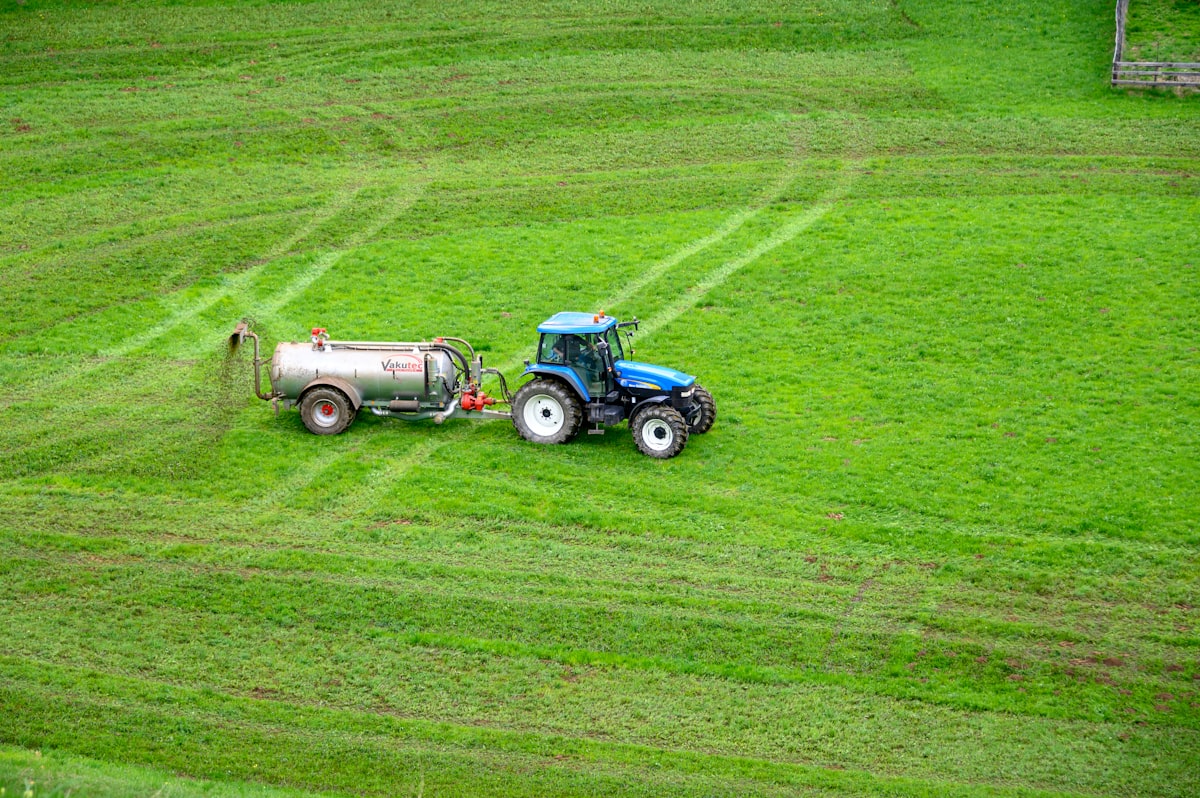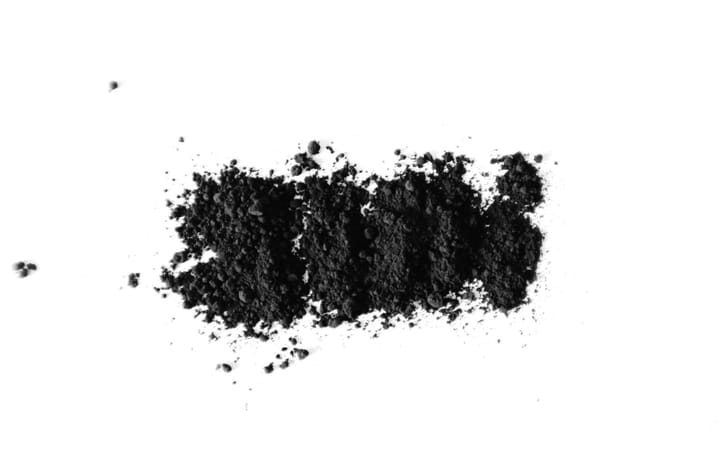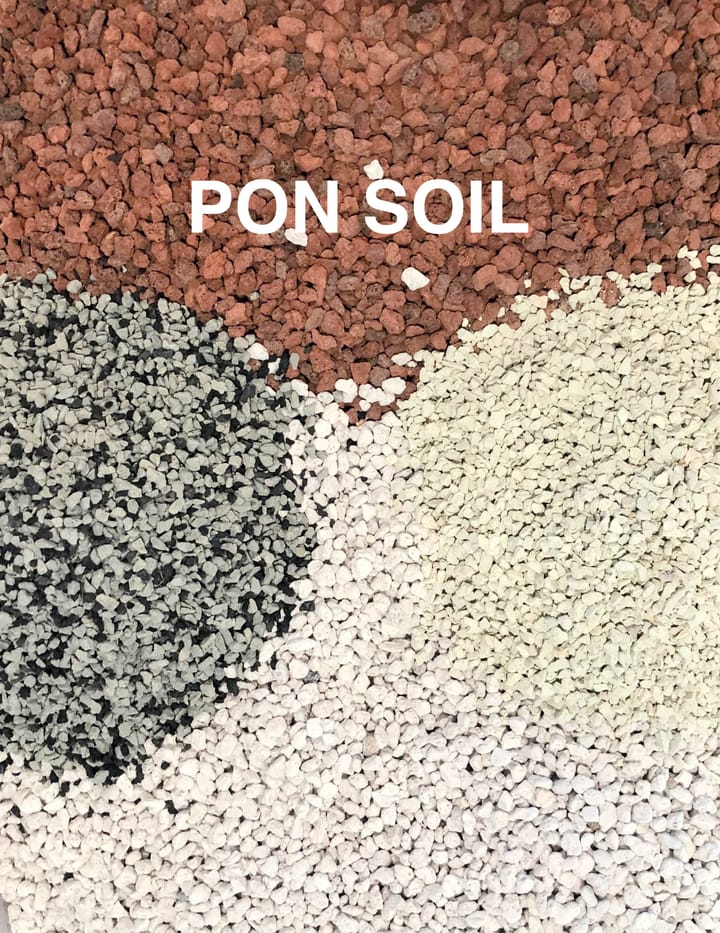Organic Vs. Non-Organic Fertilizers
When it comes to gardening and agriculture, choosing the right fertilizer can make all the difference in plant growth and soil health.

One critical decision is whether to use organic or inorganic fertilizers. Both options have pros and cons, and understanding their differences will help you make the best choice for your plants and soil.
Organic fertilizers are derived from plant or animal sources, including manure, compost, or bone meal. These fertilizers not only provide essential nutrients, but they can also improve soil structure and quality over time. On the other hand, inorganic fertilizers are synthetic, chemically-based products that deliver nutrients directly to your plants, often in higher concentrations.
In the debate between organic and inorganic fertilizers, your choice depends on factors like soil condition, plant needs, and personal preferences. It's essential to consider nutrient levels, environmental impacts, and long-term soil health before deciding which fertilizer best suits your gardening or agricultural needs.
Understanding Fertilizers
Fertilizers are essential for giving plants the necessary nutrients for proper growth and development. These nutrients are divided into two main categories: macronutrients and micronutrients. Macronutrients consist of nitrogen (N), phosphorus (P), and potassium (K), while micronutrients include elements such as calcium (Ca), magnesium (Mg), sulfur (SO), boron, copper, iron, manganese, zinc, chlorine, and cobalt.
When it comes to types of fertilizers, you have the option to choose between organic and inorganic (non-organic) fertilizers. Organic fertilizers are derived from natural sources, such as plants, animals, and minerals, and tend to improve soil structure and quality. In contrast, inorganic fertilizers are composed of synthetic minerals and chemicals, providing a more concentrated nutrient boost to your plants.
As you select a fertilizer for your needs, it's crucial to consider factors such as environmental impact, cost, and nutrient release rate. Organic fertilizers are generally considered more environmentally friendly but may be more expensive and slower in supplying the required nutrients to your plants. Inorganic fertilizers, on the other hand, provide a faster nutrient supply but might not contribute as positively to soil quality and overall sustainability.
Organic Fertilizers
Organic fertilizers are derived from decomposing organic matter such as compost, manure, and other plant or animal sources. They are sustainable, biodegradable, and eco-friendly, providing vital nutrients such as nitrogen, phosphorus, and potassium for your plants. Organic matter like compost and animal waste supplies nutrients and improves soil structure and quality.
Some common organic fertilizers include animal manure, bone meal, blood meal, and greensand. Manures and animal wastes provide various nutrients, making them a versatile choice for your garden. Bone and blood meals are animal sources rich in phosphorus and nitrogen, respectively. At the same time, greensand is a marine-based fertilizer that contains potassium and trace minerals like copper, zinc, calcium, and magnesium.
By using organic fertilizers, you are promoting a balanced ecosystem in your soil. This fosters the growth of beneficial microorganisms that break down nutrients, making them readily available to your plants. Additionally, organic fertilizers release nutrients slowly, reducing the risk of over-fertilization, and have low nitrate content, which minimizes the chance of leaching into water sources.
Non-Organic Fertilizers
Non-organic fertilizers, or inorganic or synthetic fertilizers, are artificially manufactured products that supply essential nutrients to your plants. These fertilizers typically come with higher concentrations of the three main macronutrients: nitrogen, phosphorus, and potassium (NPK). Common examples of non-organic fertilizers include ammonium sulfate, potassium chloride, and ammonium nitrate.
While plants cannot differentiate between the nutrients provided by organic or non-organic fertilizers, non-organic versions have some clear advantages. For example, these fertilizers are generally less bulky and readily available, offering a consistent and reliable source of nutrients. Their precise formulations allow you to efficiently tailor the nutrient balance to your plant's requirements.
However, it's essential to remember that using non-organic fertilizers can sometimes lead to over-fertilization, which may harm your plants and the environment; following the recommended application rates and incorporating proper management techniques to avoid this. By using these synthetic fertilizers responsibly, you can help ensure your plants' optimal growth and health.
Comparing Organic And Non-Organic Fertilizers
When selecting a fertilizer for your crops or garden, you may choose between organic and non-organic options. Both have advantages and drawbacks, so it's essential to consider factors such as the environment, cost, benefits, and safety when deciding.
Organic fertilizers are derived from natural sources, such as decomposed plants and animal materials. They have an advantage in improving soil health and structure as they contain nutrients in a more complex form, promoting water retention and encouraging the growth of beneficial microorganisms. However, they might be more expensive and have a slower nutrient uptake than non-organic fertilizers.
On the other hand, non-organic or chemical fertilizers are concentrates of the essential macronutrients nitrogen, phosphorus, and potassium (NPK). These inorganic fertilizers rapidly supply your plants with the necessary nutrients but may also contribute to runoff, leading to environmental damage. In addition, prolonged use could negatively affect soil health and structure. Despite these drawbacks, chemical fertilizers can be more cost-effective and provide quicker results than their organic counterparts.
Environmental Impact
Various factors come into play when comparing the environmental impact of organic and non-organic fertilizers. Organic fertilizers are often considered more sustainable as they release nutrients slowly and enrich the soil over time, reducing the likelihood of nutrient runoff and soil erosion. However, conventional agriculture has been shown to outperform organic agriculture in some aspects, such as land use, greenhouse gas emissions, and pollution of water bodies.
Organic fertilizers can offer a more eco-friendly option in the context of nutrient runoff and soil erosion. They are typically less prone to leaching into surrounding ecosystems, whereas inorganic fertilizers can cause water eutrophication and other environmental issues. However, organic agriculture has been found to have higher emissions in some cases, such as a study in Sweden showing organic peas having a 50% higher climate impact than conventionally grown peas.
It is essential to recognize that the specific situation and application determine the environmental footprint of each type of fertilizer. As a user of fertilizers, understanding these factors will help you make informed decisions about which kind of fertilizer is most environmentally appropriate for your needs. No one-size-fits-all solution exists, and each choice has pros and cons regarding sustainability and environmental impact.
Impact on Soil Health
The use of organic and non-organic fertilizers has distinctive impacts on soil health. Organic fertilizers, such as compost and manure, help improve soil structure, enhance water-holding capacity, and provide essential nutrients to your plants. They also support healthy populations of microorganisms, including soil bacteria, which play a crucial role in nutrient cycling and organic matter decomposition.
In contrast, non-organic or synthetic fertilizers may lead to a decline in long-term soil health by hardening the soil, reducing fertility, and decreasing microbial activity. Moreover, excessive chemical fertilizers may pollute air, water, and soil or lessen essential nutrients and minerals. On the other hand, using peat as an amendment could help to increase soil organic matter content and improve overall soil structure.
Balancing the use of these fertilizers is crucial for maintaining a healthy soil ecosystem. While organic fertilizers contribute to the presence of beneficial microorganisms and increase soil organic matter, it is essential to avoid over-reliance on synthetic fertilizers that might negatively affect soil structure and, ultimately, plant health. Your choice should be based on the specific needs of your soil and plants, prioritizing long-term soil health and productivity.
Considerations in Choosing Fertilizers
When deciding between organic and non-organic fertilizers, consider your plants' cost, benefits, and nutrient availability. Organic fertilizers generally have lower nutrient contents (NPK ratios) but provide long-term benefits by improving soil structure and quality. On the other hand, non-organic fertilizers offer more immediate results, with faster nutrient uptake and higher concentrations.
It's essential to evaluate the nutrient management of your plants. Organic fertilizers release nutrients slowly, allowing for more sustainable, balanced growth. However, they may require more applications due to their lower nutrient densities. With their fast-release nature, non-organic fertilizers can lead to excess nutrients and potential leaching, affecting the environment. Choosing the right type depends on your cultivation goals and resources.
Finally, weigh the financial aspect when selecting a fertilizer. Organic options can be more expensive upfront, but their long-term benefits to soil and plant health may outweigh the initial cost. Non-organic fertilizers are typically more cost-effective for quick nutrient boosts, but excessive use can lead to problems such as soil degradation and nutrient runoff. It's crucial to balance optimal plant growth and valuable outcomes.
Conclusion
In comparing organic and non-organic fertilizers, it's essential to consider your specific needs and the health of your soil. Organic fertilizers are more environmentally friendly, enrich the soil for extended periods, and reduce nutrient leaching. Still, they may be more costly and have a slower effect on crop growth. In contrast, non-organic fertilizers provide more immediate nutrient boosts but might not improve soil quality long-term.
When choosing a fertilizer, remember to weigh the pros and cons based on your soil's needs and the plants you're growing. If improving soil structure is a priority, opt for organic fertilizers, while non-organic fertilizers can be a suitable choice if you need to increase nutrient availability. Ultimately, the most effective approach might be a combination of both organic and non-organic fertilizers tailored to your specific garden or crop requirements.
Frequently Asked Questions
What are the benefits of using organic fertilizers?
Organic fertilizers can improve soil quality by increasing its organic matter content and promoting the growth of beneficial microorganisms. This leads to healthier plants with more robust root systems. Also, organic fertilizers release nutrients slowly, providing a steady supply to your plants throughout the growing season.
How do inorganic fertilizers affect soil and plant health?
Inorganic fertilizers quickly boost nutrients, but they can negatively affect soil and plant health over time. Frequent application of synthetic fertilizers can lead to a buildup of salts, which can harm plant roots and reduce water infiltration. Additionally, they can contribute to nutrient runoff and leaching, causing water pollution.
Why might someone choose organic fertilizers over inorganic ones?
Besides the environmental benefits, some gardeners choose organic fertilizers to improve soil health and fertility. They can also provide a more balanced and complete source of essential nutrients. Organic fertilizers are generally considered safer for humans, pets, and wildlife than synthetic counterparts.
What are the drawbacks of using non-organic fertilizers?
Non-organic fertilizers can cause an overapplication of certain nutrients, leading to imbalances and toxic conditions for plants. They may also negatively impact the environment through increased nutrient runoff, water pollution, and depletion of non-renewable resources such as natural gas, which produces synthetic nitrogen-based fertilizers.
What factors should be considered when choosing between organic and non-organic fertilizers?
When choosing between organic and synthetic fertilizers, consider cost, nutrient availability, and gardening goals. Organic fertilizers may be more expensive and have lower nutrient concentrations, but they can provide long-term benefits to soil health. On the other hand, synthetic fertilizers offer immediate nutrient availability and a more controlled release, making them suitable for specific nutrient deficiencies or fast-growing plants.


